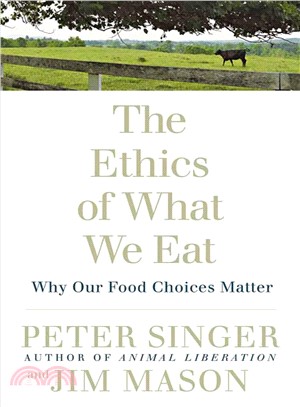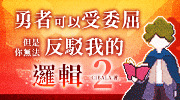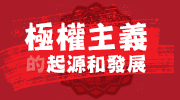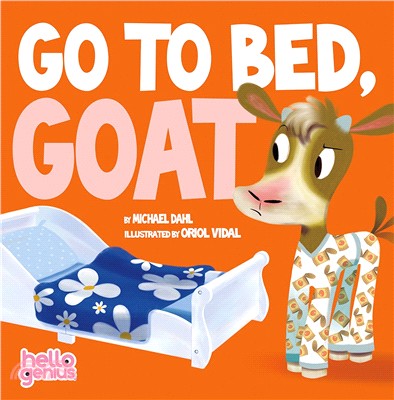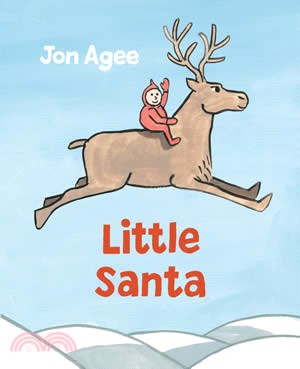The Ethics of What We Eat ─ Why Our Food Choices Matter
商品資訊
ISBN13:9781594866876
出版社:Rodale Pr
作者:Peter Singer; Jim Mason
出版日:2007/03/06
裝訂/頁數:平裝/328頁
規格:23.5cm*15.2cm*2.5cm (高/寬/厚)
商品簡介
作者簡介
相關商品
商品簡介
Peter Singer, the groundbreaking ethicist whom The New Yorker calls the most influential philosopher alive teams up again with Jim Mason, his coauthor on the acclaimed Animal Factories, to set their critical sights on the food we buy and eat: where it comes from, how it is produced, and whether it was raised humanely.
The Ethics of What We Eat explores the impact our food choices have on humans, animals, and the environment. Recognizing that not all of us will become vegetarians, Singer and Mason offer ways to make healthful, humane food choices. As they point out: You can be ethical without being fanatical. Peter Singer is a professor of bioethics at Princeton University's Center for Human Values. He first became well known internationally after the publication of Animal Liberation in 1975. He also coauthored Animal Factories and was named by Time magazine as one of the world's 100 most influential people. Born in Australia, he he now lives in New York.
Jim Mason is the author of An Unnatural Order and the coauthor of Animal Factories. He is also an attorney and the fifth generation of a Missouri farming family.Convenience, price, and packaging have become the driving forces behind the American diet. But what is the true cost of our day-to-day food choices? To answer this timely and important question, coauthors Peter Singer, a probing ethicist, and Jim Mason, an environmentally conscious writer and attorney, undertake a modern-day odyssey. Beginning their adventure at the dinner tables of three typical families with different tastes and grocery-shopping habits, they set out to trace the origins of the food we eat. Singer and Mason pursue the story with the kind of investigate and intellectual tenacity behind such titles as Silent Spring and Fast Food Nation, hauling in pots from the Chesapeake Bay with a commercial crabber and dumpster diving with an urban band of "freegans." Along the way they check the validity of such labels as "Animal Care Certified," "Certified Humane," "organic," and "Fair Trade." They expose the working conditions in Southern food-processing plants as well as in other countries. They weigh the pros and cons of buying local, the complex dynamics of sustainability, the controversy over genetically modified organisms, the ethics of obesity, and the health implications of raising children vegan. The Way We Eat concludes with five simple principles that the consumers can use to make better food choices. Should we eat meat? If so, what kinds of meat are humane to eat? What kinds of produce and dairy products? Wild fish, or farmed? Veal—ever? Recognizing that not all of us will become vegetarians, Singer and Mason offer powerful reasons for eating more conscientiously. "[This] book is clear and persuasive."—Susan Salter Reynolds, Los Angeles Times Book Review "Eating is, among other things, an ethical act. But to eat ethically requires knowledge of how our food is produced. In this well-researched and deeply troubling book, Peter Singer and Jim Mason paint a devastating portrait of the American meat industry that is bound to change the way you eat."—Michael Pollan, author of The Botany of Desire and The Omnivore's Dilemma "In their new book—commonsense in it's approach, easy to read, packed with information—Peter Singer and Jim Mason show how market forces inexorably drive farmers toward cruel practices. But their overall message is not bleak. Factory farming is under pressure to justify itself. The day may not be far when we will return to a more ethical treatment of fellow animals, and there are many practical things that ordinary consumers can do to bring that day nearer."—J.M. Cotzee, Nobel Prize-winning author of Disgrace and Slow Man "An absolutely indispensable book for anyone who thinks about what they eat. Singer and Mason present a sensible, rational discussion of why we should care about what we put into our stomach—whether for health reasons, for the environment's health, for the sake of animals, or for the people who work at producing our food. The Way We Eat is that rare combination of lively read and thorough research and investigation,. I cannot recommend it highly enough."—Jeffrey Moussaieff Masson, author of When Elephants Weep and Raising the Peaceable Kingdom "Ethicist Singer and co-author Mason document corporate deception, widespread waste and desensitization to inhumane practices in this consideration of ethical eating. The authors examine three families' grocery-buying habits and the motivations behind those choices. One woman says she's 'absorbed in my life and my family . . . and I don't think very much about the welfare of the meat I'm eating,' while a wealthier husband and wife mull the virtues of 'triple certified' coffee, buying local and avoiding chocolate harvested by child slave labor, though 'no one seems to be pondering that as they eat.' In investigating food production conditions, the authors' first-hand experiences alternate between horror and comedy, from slaughterhouses to artificial turkey-insemination ('the hardest, fastest, dirtiest, most disgusting, worst-paid work'). This sometimes-graphic exposé is not myopic: profitability and animal welfare are given equal consideration, though the reader finishes the book agreeing with the authors' conclusion that 'America's food industry seeks to keep Americans in the dark about the ethical components of their food choices.' A no-holds-barred treatise on ethical consumption, this is an important read for those concerned with the long, frightening trip between farm and plate."—Publishers Weekly
The Ethics of What We Eat explores the impact our food choices have on humans, animals, and the environment. Recognizing that not all of us will become vegetarians, Singer and Mason offer ways to make healthful, humane food choices. As they point out: You can be ethical without being fanatical. Peter Singer is a professor of bioethics at Princeton University's Center for Human Values. He first became well known internationally after the publication of Animal Liberation in 1975. He also coauthored Animal Factories and was named by Time magazine as one of the world's 100 most influential people. Born in Australia, he he now lives in New York.
Jim Mason is the author of An Unnatural Order and the coauthor of Animal Factories. He is also an attorney and the fifth generation of a Missouri farming family.Convenience, price, and packaging have become the driving forces behind the American diet. But what is the true cost of our day-to-day food choices? To answer this timely and important question, coauthors Peter Singer, a probing ethicist, and Jim Mason, an environmentally conscious writer and attorney, undertake a modern-day odyssey. Beginning their adventure at the dinner tables of three typical families with different tastes and grocery-shopping habits, they set out to trace the origins of the food we eat. Singer and Mason pursue the story with the kind of investigate and intellectual tenacity behind such titles as Silent Spring and Fast Food Nation, hauling in pots from the Chesapeake Bay with a commercial crabber and dumpster diving with an urban band of "freegans." Along the way they check the validity of such labels as "Animal Care Certified," "Certified Humane," "organic," and "Fair Trade." They expose the working conditions in Southern food-processing plants as well as in other countries. They weigh the pros and cons of buying local, the complex dynamics of sustainability, the controversy over genetically modified organisms, the ethics of obesity, and the health implications of raising children vegan. The Way We Eat concludes with five simple principles that the consumers can use to make better food choices. Should we eat meat? If so, what kinds of meat are humane to eat? What kinds of produce and dairy products? Wild fish, or farmed? Veal—ever? Recognizing that not all of us will become vegetarians, Singer and Mason offer powerful reasons for eating more conscientiously. "[This] book is clear and persuasive."—Susan Salter Reynolds, Los Angeles Times Book Review "Eating is, among other things, an ethical act. But to eat ethically requires knowledge of how our food is produced. In this well-researched and deeply troubling book, Peter Singer and Jim Mason paint a devastating portrait of the American meat industry that is bound to change the way you eat."—Michael Pollan, author of The Botany of Desire and The Omnivore's Dilemma "In their new book—commonsense in it's approach, easy to read, packed with information—Peter Singer and Jim Mason show how market forces inexorably drive farmers toward cruel practices. But their overall message is not bleak. Factory farming is under pressure to justify itself. The day may not be far when we will return to a more ethical treatment of fellow animals, and there are many practical things that ordinary consumers can do to bring that day nearer."—J.M. Cotzee, Nobel Prize-winning author of Disgrace and Slow Man "An absolutely indispensable book for anyone who thinks about what they eat. Singer and Mason present a sensible, rational discussion of why we should care about what we put into our stomach—whether for health reasons, for the environment's health, for the sake of animals, or for the people who work at producing our food. The Way We Eat is that rare combination of lively read and thorough research and investigation,. I cannot recommend it highly enough."—Jeffrey Moussaieff Masson, author of When Elephants Weep and Raising the Peaceable Kingdom "Ethicist Singer and co-author Mason document corporate deception, widespread waste and desensitization to inhumane practices in this consideration of ethical eating. The authors examine three families' grocery-buying habits and the motivations behind those choices. One woman says she's 'absorbed in my life and my family . . . and I don't think very much about the welfare of the meat I'm eating,' while a wealthier husband and wife mull the virtues of 'triple certified' coffee, buying local and avoiding chocolate harvested by child slave labor, though 'no one seems to be pondering that as they eat.' In investigating food production conditions, the authors' first-hand experiences alternate between horror and comedy, from slaughterhouses to artificial turkey-insemination ('the hardest, fastest, dirtiest, most disgusting, worst-paid work'). This sometimes-graphic exposé is not myopic: profitability and animal welfare are given equal consideration, though the reader finishes the book agreeing with the authors' conclusion that 'America's food industry seeks to keep Americans in the dark about the ethical components of their food choices.' A no-holds-barred treatise on ethical consumption, this is an important read for those concerned with the long, frightening trip between farm and plate."—Publishers Weekly
作者簡介
PETER SINGER, is author of?Animal Liberation?and coauthor of?Animal Factories,?is one of the highest-profile writers on ethics today, regularly drawing fire for his views on such hot-button issues as abortion, euthanasia, war, and animal rights. Born in Australia, he has taught at Princeton University since 1999 and lives in New York.
JIM MASON is the author of?An Unnatural Order?and the coauthor of?Animal Factories.?He is also an attorney and the fifth generation of a Missouri farming family. He lives on Virginia's Eastern Shore.
JIM MASON is the author of?An Unnatural Order?and the coauthor of?Animal Factories.?He is also an attorney and the fifth generation of a Missouri farming family. He lives on Virginia's Eastern Shore.
主題書展
更多
主題書展
更多書展今日66折
您曾經瀏覽過的商品
購物須知
外文書商品之書封,為出版社提供之樣本。實際出貨商品,以出版社所提供之現有版本為主。部份書籍,因出版社供應狀況特殊,匯率將依實際狀況做調整。
無庫存之商品,在您完成訂單程序之後,將以空運的方式為你下單調貨。為了縮短等待的時間,建議您將外文書與其他商品分開下單,以獲得最快的取貨速度,平均調貨時間為1~2個月。
為了保護您的權益,「三民網路書店」提供會員七日商品鑑賞期(收到商品為起始日)。
若要辦理退貨,請在商品鑑賞期內寄回,且商品必須是全新狀態與完整包裝(商品、附件、發票、隨貨贈品等)否則恕不接受退貨。



